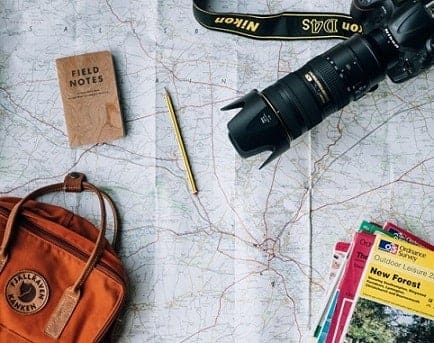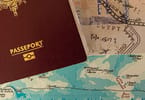Traveling can be a lot of fun and an excellent way to try new things, make new memories and meet new people. But it can also be an excellent way to lose your money and vacation time if you aren’t careful enough.
Travel scams are on the rise, tricking even the savviest travelers into falling victim to them. Unfortunately, these scams can hurt your wallet and destroy your dream trip. Hence, it’s important to stay vigilant, especially when dealing with unfamiliar people or establishments.
So, before you head off on your next trip, make sure you’re prepared to handle any of the many common travel scams out there so that you can have the best possible experience and not worry about anything except enjoying the travel.
To help you steer clear of common travel scams and safeguard yourself, here are 10 tips on how to protect yourself from travel scams.
1) Stay smart with Airbnb
Airbnb is a great option for travel, but it can also be a risky choice. There have been instances of hosts canceling reservations or creating ghost listings to scam unsuspecting visitors out of their hard-earned money. So how do you stay safe?
Here are ten ways to protect yourself when using Airbnb:
● First, make sure the host has a verified profile and check for reviews.
● Read the description and house rules carefully before booking.
● Take screenshots while booking your stay so you can prove that you booked exactly that accommodation in case something goes wrong down the line.
● Double-check the location on Google Maps and cross-reference what’s shown on the map with what’s shown on Airbnb.
● Ask questions about pets, smoking habits, noise levels, and who will be present during your stay.
● Research where you want to go before booking; try not to book at just any place because there might not be anything available at a more popular location.
● Beware of any deals that seem too good to be true.
2) Keep your devices safe from tampering
Carry your devices in a bag or purse with a zipper or other closure. Consider placing them in an RFID-blocking sleeve to protect against electronic pickpocketing.
Keep your laptop, tablet, and phone out of sight as much as possible when you’re not using them.
If you need to use your device during the trip, avoid logging into private accounts on public Wi-Fi networks or other unsecured networks. Instead, use a Virtual Private Network (VPN) when using public WiFi.
VPNs are available for most operating systems and devices to encrypt all the data sent to and from your computer. This will make it much harder for someone to hack into your information while you’re browsing the internet in a public place.
3) Airports are prime spots for thieves, so stay alert!
Airports are prime spots for thieves. They’re bustling, so getting lost in the crowds and pickpocketed or bumped from behind is easy. Thieves also know people have a lot of luggage and might not notice if something is gone until they go to the baggage claim.
So be aware of your surroundings and don’t put your purse or backpack down on an empty bench. Even better, use a cross-body bag you can wear across your chest instead of carrying it on your back.
4) Book ahead of time
Booking ahead of time can help reduce the risk of being scammed. You can find reviews and price comparisons online to know you’re getting a fair deal. It’s also helpful to book in advance because some hotels may be unable to accommodate your last-minute request.
Finally, booking in advance means you’ll have time for a backup plan if there are any changes, such as flight cancellations.
5) Buy travel insurance
There are many scams that can happen to you when traveling. One of the most common is thieves breaking into your hotel room, stealing your belongings, and running away.
Ịzụta mkpuchi njem can be a great way to protect yourself in this situation by allowing you to file a claim for reimbursement.
Keep in mind that travel insurance doesn’t cover any losses due to natural disasters or war, so it’s important to research whether or not the destination you’re visiting is at risk for those events.
6) Read reviews of the hotel
There are a number of things to watch out for when booking hotels, and TripAdvisor reviews can be your best friend. Be sure to read the reviews before booking anything; they might save you from a scam.
Make sure that there’s not any big event happening during your stay at the hotel; ensure that there are bathrooms in all rooms, especially if you’re going to be sharing a room with someone else.
Don’t get charged more than once for one reservation, and don’t ever book through an online travel agent unless it’s something that has been recommended to you by someone already familiar with them.
7) Get recommendations from locals
The best way to avoid being scammed on your trip is by doing your homework. There are many travel websites and forums where you can ask other travelers for advice on the best places to visit, hotels to stay at, and how to avoid scams.
You can also ask a local what their favorite tourist attractions are or what their favorite spots in town are. Most locals know some shady shops in town that visitors should be wary of. Don’t be afraid to get off the beaten path a bit.
8) Ask questions when booking online
Booking a hotel or Airbnb from an unknown website may seem like it’s saving you money, but it could be costing you in the end. So before you book a room, ask yourself these questions to help determine if the deal is too good to be true.
● How much does it cost?
● What are all of the fees?
● What type of currency is being charged?
● Is there a cancellation policy?
● Does the company provide customer reviews and photos?
● When do I need to make my reservation?
● Who will I contact for assistance during my stay?
● Where can I find their physical address (not just their phone number)?
● Is this site or property linked with a major international hotel chain I recognize (Hilton, Starwood)? If not, why not?
9) Take only what you need in terms of documents and valuables
Taking only what you need in terms of documents and valuables helps protect against theft and fraud. Pickpockets, in particular, target people with bulky bags, so keep everything you don’t need to travel safely tucked away at home.
When you’re out and about, never carry your passport unless absolutely necessary. And if someone asks for it, always make sure they’re not just being friendly; if they are a police officer or official, they’ll be able to show credentials. You can always double-check their identity on Nọmba.
10) Trust your gut when something feels off
When something feels off about a travel deal or when you’re out and about, trust your gut. It’s much better to be safe than sorry. If you think something just doesn’t seem right, it probably isn’t.
Even if you are really excited about the trip, listen to those feelings of caution because they could help save your life. It may not always be easy, but it’s best to stay on the side of caution to ensure safe travels.
Be wary of offers that seem too good to be true. If the price is too low, the company could be under-reporting expenses. Also, if it sounds too good to be true, it probably is. If you’re unsure about something, research online and check with a travel agent.
Bottom Line
Unfortunately, travel scams are a legitimate threat to travelers. They’re on the rise, and there’s no telling how many people have been affected. The best way to protect yourself is to be wary of deals that seem too good to be true and do your research before booking any reservations or accommodations.
So, whether you’re traveling in a foreign country or just visiting your home city, the ten travel safety tips we’ve discussed above should help you steer clear of potential scams and stay safe during your travels.
IHE Ị GA-Ewepụ na edemede a:
- So, before you head off on your next trip, make sure you're prepared to handle any of the many common travel scams out there so that you can have the best possible experience and not worry about anything except enjoying the travel.
- Purchasing travel insurance can be a great way to protect yourself in this situation by allowing you to file a claim for reimbursement.
- Carry your devices in a bag or purse with a zipper or other closure.























